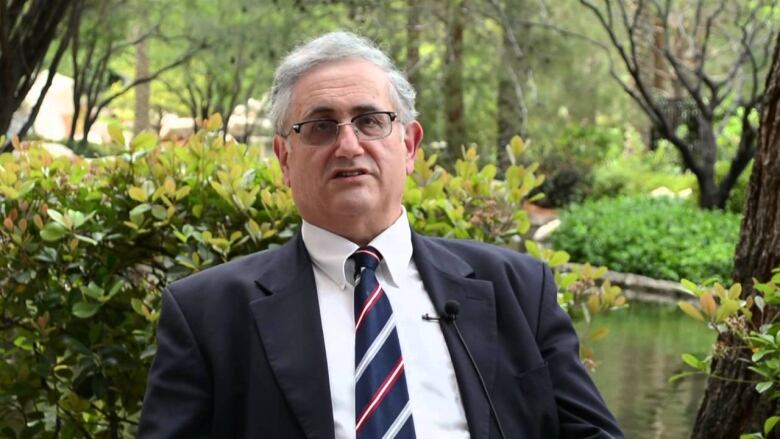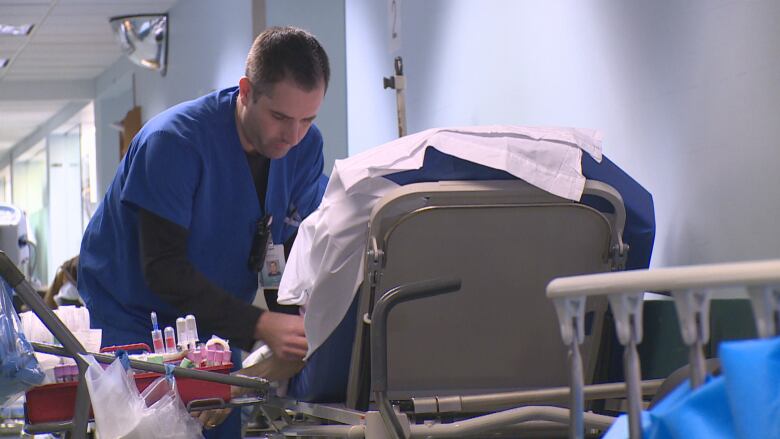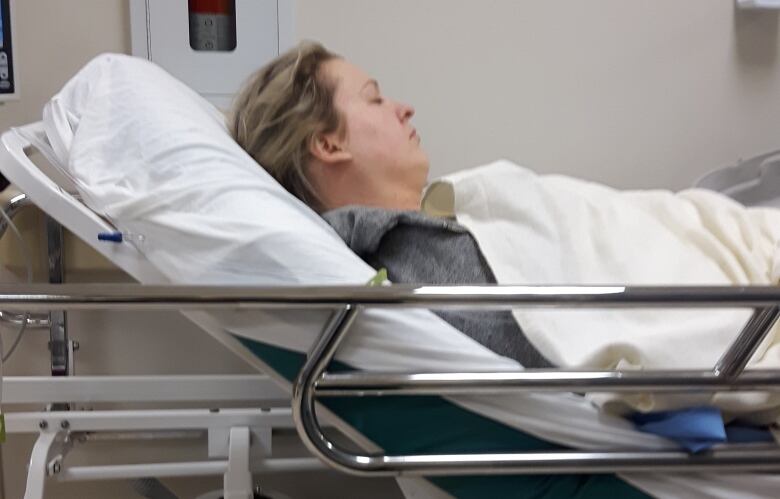Why Ontario hospitals 'don't know what they want' when it comes to fixing healthcare
Expert says hospitals should focus on innovative approaches to improve speed and efficiency

An American healthcare efficiency expert says to "end hallway healthcare" in Ontario the provincial government needs to start working more efficiently with what it has and it can start by applying scientific rigour to how hospitals operate.
It comes as Ontario Premier Doug Ford personally announced plans to rebuild West Lincoln Memorial Hospital in Grimsby, Ont., on Wednesday, a facility whose on-again, off-again plans for refurbishment wereshelved in 2005 under the previous Liberal government for what many believed at the timewere partisan reasons.
"We're going to build you a new hospital you need," Ford said at anews conference.
Ending 'hallway healthcare'

Between September 2017 and September 2018, the average length of stay for all emergency patients admitted to West Lincoln Memorial hospital was 32 hours.
That's double the provincial average of 16.3 and far below London's St Joseph's Healthcare at 5.9, University Hospital at 14.5 and even Victoria Hospital at 16.9. The provincial target, by the way, is eight.
"You don't have to be a clinician, you just have to apply common sense," said Eugene Litvak."If our loved one would have to be seated for 16 hours in anemergencyroom, would we find that acceptable?"
"I do not find that acceptable," he said.
Litvak is a former Soviet mathematician turnedprofessor at the Harvard School of Public Health. He's alsothe president and CEO of non-profit Institute for Healthcare Optimization based in Boston.
Litvak's life work involves trying to come up with innovative approaches on how to improve the speed and efficiency at which patients move through the hospital system all whileavoiding unnecessary construction costs and medical errors.
He's written more than 60 publications on hospital operations management and his team has dramatically improved some big name hospitals, including the Cincinnati Children's Hospitaland Newark Beth Israel Centerin New Jersey.
'More predictable than mismanagement'

Litvak says the problem in Ontario is the same as it is for many jurisdictions: demand exceeds capacity and the capacity, which in Ontario is $57.9 billion worth of healthcare, is being mismanaged.
As an example, Litvakuses data from Health Quality Ontario, which shows wait times in the province's overcrowded emergency rooms have remained virtuallyunchanged in the last year, from 15.9 hours in September 2017 to 16.3 hours in September 2018.
Litvak said through his work analyzing hospital data, he has found that the number of patients who arrive in the emergency department on a daily basis is actually more predictable than the number of scheduled admissions that take place.
"It's more predictable than mismanagement," he said, noting that while hospitals may want more beds, they more than likely do not have a scientifically-based answer when it comes to the bed types and how many they need.
"The hospitals don't know what they want," he said, noting that at no fault of their own, it is difficult for hospitals to scientifically determine exactly what resources theyneed.
"When they say 'give us more beds,' how about more nurses? The shortage of nursesin Canada is going to grow. So where are these nurses going to come from? Nobody knows, but they say 'just give us more.'"
Litvakargues hospitals could do more with what they already have using agrowing fieldknown as operations research to improve the overcrowding that's taking place in many Ontario hospitals.
Some of the recommendations he said could be implemented not only quickly but easily, includedischarging patients earlier in the day for speedierturnaround of empty beds, changing the way surgeries are scheduled and separating medical and alternate level of care patients to free up space, improve care andsave money.
Ontario slow to change

Litvakand his team were invited to Ontario in March by the Ontario Hospital Association to teach top level hospital administrators in the province some of his innovations.
"It is being implemented certainly in Ottawa," said Ontario Hospital Associationpresident and CEO Anthony Dale, noting the applications are already starting topay dividends there, but it remains the lone notable example.
"For a long time a lot of decisions in healthcare have been based on a lot of things other than evidence," he said, noting Wednesday's announcement to finally build a new hospital for West Lincoln Memorial in Grimsbyafter it was shelved for 13 years was a prime example.
"The previous government had its reasons for doing that," he said. "Now it's back on the list and I guess that's welcome news, but the point is: you can get whiplash sometimes with the way decisions can change."
"We need to get on to a proper long-term planning horizon. One that is reliable and based strictly on the needs of patients," he said.
"What will be key now is that the government lives up to its promise."












_(720p).jpg)


 OFFICIAL HD MUSIC VIDEO.jpg)
.jpg)



























































































